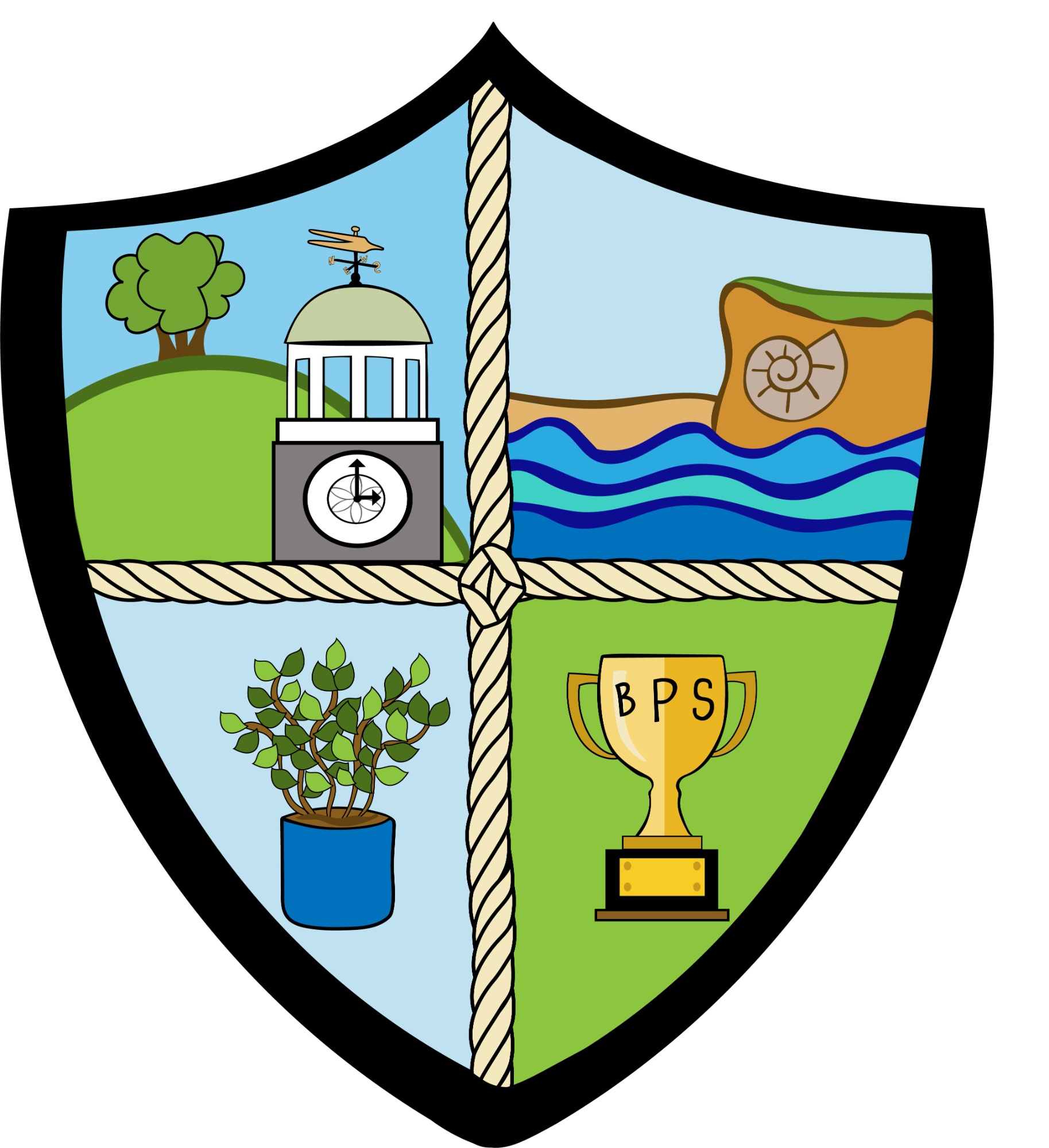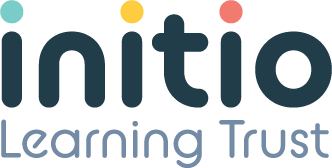Learning
Children will only learn at their best, and teachers will only teach at their best, when:
- They feel respected
- They feel valued, secure, confident and cared for.
- They are clear about expectations placed on them.
- Learning is staged and developed logically.
- There is a calm, ordered and consistent environment.
- There is an atmosphere of mutual co-operation and collaboration.
- Challenges are set which raise their expectations.
- Praise rather than punishment is appropriately used.
- They receive feedback about their performance.
- They are an integral part of a learning community – where learning is for life and the betterment of society.
- Staff feel they are supported by on-going training and professional development within a supportive network.
Curriculum Provision at Bridport Primary School
At BPS, we have worked with our partner schools in the Initio Learning Trust, using Cornerstones to support our planning. We have also drawn upon the passion and expertise of our staff to produce a challenging, rigorous and exciting new curriculum.
Underpinning our curriculum is our Rights Respecting ethos. This comes directly from the Convention on the Rights of the child. Children in every class acknowledge and use the language of RIGHTS. Assemblies are often founded in these rights, so there is a clear message given beyond the classroom. Staff and pupils treat each other with dignity and respect because we all have the right to be treated this way and because we believe it is an appropriate way to conduct ourselves.
Literacy
Our literacy curriculum comprises a systematic approach of teaching Read Write Inc phonics for younger children (and spelling in key stage two) and a writing-based cross-curricular approach for the older children. We use Talk for Writing techniques (by Pie Corbett) to give structure and progression in writing.
We strive to foster a love of reading in our pupils, and children of all ages are helped to read widely, both at home and at school. Children read in school every day and for all sorts of purposes. They will discuss a range of texts and their meaning, pick out interesting and new vocabulary or simply enjoy it! This may be done individually, in groups or as part of wider class work. Children reflect on their own reading knowledge and skills. Children are also read to by adults, familiarising them with exciting and stimulating stories, poems and texts.
Mathematics
At BPS we follow the “mastery” approach to mathematics. We have a vision for our children to be confident and resilient mathematicians who enjoy a challenge and have a strong grasp of number and the language of mathematics. The children are encouraged to use resources to support and extend their understanding of key concepts and there is a focus on the use of mathematical vocabulary to support children’s reasoning and develop a greater depth of understanding. We are enriching our maths curriculum through our involvement in projects within the MLT as well as the Jurassic Maths Hub and the NCETM (National Centre for Excellence in the Teaching of Mathematics); our joint focus is to offer an outstanding maths curriculum through participation in research projects and teachers’ ongoing professional development.
Our topic-based learning brings together science, humanities and the arts, giving a cross-curricular approach to learning. The topic may be driven by one particular area of the curriculum, but incorporates other subjects as well.
Other subjects
Intent
At BPS, we know our pupils need to connect ideas, reinforce their learning and understand how it relates to real life. Our pupils need skills for life, and we aim for bigger-picture concepts to guide them on to secondary school.
Our non-core curriculum is broad and balanced to help our pupils understand and enjoy differences between all cultures, beliefs and humans, and increase pupils' subject knowledge and understanding of healthy living, the environment and cultural understanding.
Implementation
At BPS, we provide a broad and balanced curriculum based around the Cornerstones Curriculum, a nationally recognised approach for delivering outstanding learning opportunities for children.
What is the Cornerstones Curriculum?
The Cornerstones Curriculum is a creative and thematic approach to learning that is mapped to the 2014 primary national curriculum to ensure comprehensive coverage of national expectations. It is delivered through imaginative and knowledge rich learning projects, which provide a rich menu of exciting and motivating learning activities that make creative links between all aspects of children’s learning.
Each term, pupils are taught a main project with a history or geography focus, along with mini projects that cover the other foundation subjects (which have also been carefully mapped out in sequence).
We believe children learn better when they are encouraged to use their imagination and apply their learning to engaging contexts. Our curriculum provides many learning challenges throughout the academic year that require children to solve problems, apply themselves creatively and express their knowledge and understanding effectively.
Cornerstones takes a broad and balanced approach to the curriculum where knowledge and skills are intertwined and equally valued. The Cornerstones approach helps children to acquire the knowledge in order to learn ever more complex skills, and then gives them opportunities to practise and apply them over time, in order to master them. This includes regular knowledge retrieval and application and revisiting and refining skills. Both knowledge and skills, therefore, combine to enrich the learning experience.
Cornerstones also provide a rigorous skills and knowledge framework that outlines the end of year expectations in all subjects. These skills and knowledge are tied to activities and are age-related so that staff can track children’s progress and identify their individual learning needs.
General principles
Our curriculum will give children the opportunity to:
- develop a rich and deep subject knowledge;
- develop new skills through a variety of interesting contexts;
- understand the purpose and value of their learning and see its relevance to their past, present and future.
Impact
The impact of our curriculum is that by the end of each year, the vast majority of pupils have sustained mastery of the content, that is, they remember it all and are fluent in it; Some pupils have a greater depth of understanding. We track carefully throughout each stage, utilising live feedback, self and peer assessment wherever possible, to ensure pupils are on track to reach the expectations of our curriculum.
Knowledge Organisers
To further support our children’s developing subject knowledge, knowledge organisers form a central part in the implementation of our knowledge-rich curriculum within the classroom. Within lessons, pupils have access to these tools at all times to help them gain, retain and build the knowledge and skills. As a constant point of reference, we expect our children to use the knowledge organisers to support them in applying subject-specific vocabulary in their explanations.
A knowledge organiser is a document, usually no more than two sides of A4, that contains key facts and information that children need to have a basic knowledge and understanding of a topic.
Our knowledge organisers will include:
• the essential facts about the topic, usually laid out in easily digestible chunks;
• key vocabulary or technical terms and their meanings;
• images, such as maps or diagrams;
• famous quotations, if relevant.
We all want children to gain specific knowledge in each curriculum subject that builds up over time. The main benefit of knowledge organisers is that they give our children and teachers the ‘bigger picture’ of a topic, subject area or specific concepts. Some topics can be complicated, so having the essential knowledge, clear diagrams, explanations and key terms on one document can be really helpful.
Organisation of curriculum content
The year-group overview below set out the projects for each year group and term. Projects are organised to maximise meaningful links between subjects, aspects and concepts.
Overview
Computing and Technology
In computing and technology, we have a clear and simple vision: the children should be: online-safe, online-inspired and online-confident. Computing is an integral part of our everyday life and will play an immeasurable part in our children’s futures. Whilst teachers promote creativity and enthusiasm, children at BPS will learn the skills to thrive in a world that is becoming increasingly dependent on computing. As computing underpins today’s modern lifestyle, it is essential that the children gain the confidence and ability to prepare them for the challenge of a rapidly developing and changing technological world.
Religious Education
At BPS, we believe that meaningful and thought-provoking religious education makes a distinctive contribution to the school curriculum. We use the enquiry-based Discovery RE syllabus of work.
Collective Worship
Daily Collective Worship is a legal requirement and is mainly of a broadly Christian character. Parents have the right to withdraw their child from acts of collective worship, and should contact the school if desired. As a school, we learn about and celebrate all and non faith, in addition to Christianity.
The Creative Curriculum
Our children develop their skills and expression through a creative curriculum in Art, Design and Music. Children work with paints, clays, charcoals, pastels and many other media in our art lessons. Children are encouraged to find practical solutions to real-world problems in our design lessons.
Languages
Our languages curriculum, through which all children in key stage two learn Spanish, encourages children to become confident speakers of Spanish. Through role-play and recitation, our children learn quickly, and have fun doing so.
Personal, Social, Health and Economic Education (PSHCE)
Our PSHCE curriculum is an ongoing thread that can be seen woven into many aspects of school life. Learning tackles bereavement, the language of safeguarding and relationships education, as well as issues of friendship, relationship and self-esteem building. Teachers are skilled in determining whether children need to be taught individually, in small groups or as a class when tackling the more complex issues associated with PSHCE. Visits and visitors to the school enhance this work over the course of a child’s journey through school. Family support is offered as an additional layer to this vital curriculum area; the support worker offers very specific individual support where required through an ELSA programme.
For more information, visit our PSHCE page below:
Physical Education
Finally, we enjoy an energetic physical education curriculum, in which children develop skills and physical fitness across a range of different sports and physical disciplines. Children receive teaching not only in conventional team sports and athletics, but benefit from units of Gymnastics, Dance and Swimming. Our children’s aptitudes are developed further through our after-school provision of a wide variety of sports clubs. The children at BPS enjoy ‘the daily mile’, which enables them to get a short burst of physical activity at a chosen point throughout the day. This year, we are delighted to added forest schools into our outdoor curriculum. Our younger children have always benefited greatly from ‘Nature Rangers’, and this enables the valuable learning that happens during these sessions to continue all the way through the school.
If you would like any further information on this, please contact the school – office@bridportprimary.org
In order to ensure that children receive the curriculum they need as a result of covid, teachers are using NCETM prioritisation documents in mathematics as a starting point for maths planning. In the wider curriculum, knowledge organisers provide a basic entitlement for a topic, used alongside teacher assessment. The school has also prioritised PSHCE and mental health work.
Please visit the Government website to view information on the official English National Curriculum.
Information about MUSIC

